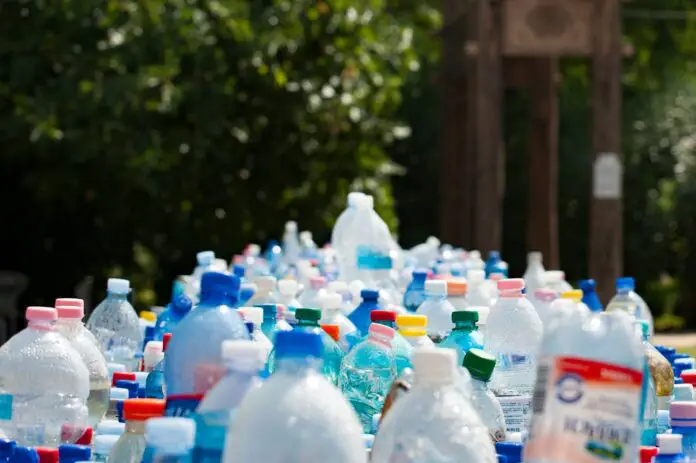

The UK has been engaged in a major environmental initiative for a few months with the implementation of the ban on lightweight single-use plastics, which came into force on 1 October 2023. This innovative legislation represents a change in the national strategy to mitigate pollution caused by plastic and its harmful effects. consequences. This article explores the ramifications of this legislative transformation, focusing in particular on the UK takeaway food industry, which has traditionally relied heavily on single-use plastic.
Understanding the ban
“Single-use” plastic refers to items intended to be used only once before disposal. The new regulation targets a variety of lightweight plastic products commonly found in takeaways, including:
- Lightweight plastic plates
- Bowls
- Trays
- Containers
- Silverware
Restaurateurs must also keep in mind that:
- The ban concerns both online and over-the-counter sales and supplies.
- Includes items from both new and existing stock.
- “Disposable” means an item designed for one-time use for its intended purpose.
The corporate obligations under the new regulation include:
- Identifying and implementing reusable alternatives to single-use items.
- Considering other materials to replace single-use plastic.
- Continued distribution of banned single-use plastics can lead to fines.
However, some plastic packaging can be used, including:
- Pre-filled salad bowls or ready-made meals in trays.
- recyclable/reusable plates filled at the takeaway counter.
- Trays used for food delivery.
- Heavy cutlery
Enforcement and compliance
Local authorities will carry out checks to ensure compliance with the rules. Inspectors can:
- Visit shops or stores.
- Make test purchases.
- Talk to the staff.
- Request to see the records.
If a company is found to be non-compliant, inspectors can order the company to cover the costs of the investigation.
Changes expected in takeaways
As single-use plastics are phased out, takeaway services are expected to transition to more sustainable food packaging solutions. Materials such as brown kraft corrugated board, brown kraft paperboard and bagasse are set to become more popular.
Corrugated cardboard and Kraft brown cardboard are known for their durability and versatility and meet various food packaging needs. These materials are not only biodegradable and compostable, but can also be recycled efficiently.
Bagasse, a byproduct of sugarcane and plant fibers, has replaced Styrofoam in hamburger boxes. This completely biodegradable and compostable material stands out for its respect for the environment.
Takeaway sellers are now challenged to source high-quality, sustainable food packaging options to meet customer needs while complying with the new law.
The impact on UK takeaway business
Moving away from single-use plastic requires significant operational changes for takeaway businesses. They are now tasked with finding sustainable alternatives for items such as cutlery and containers. This transition is driven not only by legal obligations but also by increasing consumer demand for eco-conscious practices.
Customers will notice a noticeable difference in their takeout routines. Moving away from plastic will introduce a variety of alternative packaging and utensils. While these changes may initially seem unusual, they indicate a collective movement towards a more sustainable lifestyle. Over time, as consumers become accustomed to these changes, their preference for sustainable options is likely to spur additional environmentally friendly choices in other aspects of their lives.
Exemptions and special considerations
Despite the widespread nature of the ban, specific exemptions exist. Disposable plastic plates, bowls and trays can still be supplied if they are part of pre-filled packaging. This exemption applies to items such as pre-packaged salads or meal trays and plates filled at the takeout counter. Additionally, companies can supply these items to other companies, a crucial point for suppliers in the food industry.
A notable aspect of the ban is the explicit ban on the use of expanded polystyrene containers for ready-to-eat food and beverages, including cups. Expanded polystyrene, known for its environmental persistence, is being targeted for its significant environmental footprint.
The broader implications
The ban on single-use plastics in the UK is more than a regulatory change; it is a cultural shift towards environmental management and sustainable living. This change in consumer behavior is also driving the evolution of the market. Companies are innovating to meet new needs, creating products that are not only environmentally friendly but also functional and aesthetically pleasing. From bamboo cutlery sets to wheat straw containers, a variety of new eco-conscious products are entering the market, offering consumers choices that align with their values.
Future prospects and global impact
As other countries observe the effects and benefits of such policies, similar initiatives will likely be adopted around the world. This global change could lead to a significant reduction in plastic pollution, the preservation of ecosystems and the protection of wildlife.
Additionally, the ban serves as a call to action for individuals, businesses and governments to think critically about their environmental impact and innovate towards a greener future. It is an opportunity to rethink our relationship with the environment and to chart a path to a more sustainable and prosperous planet for future generations.
The ban on single-use plastics in the UK is a vital step in the fight against plastic pollution. It’s a move that challenges the status quo, spurs innovation and inspires a global conversation about sustainability. As the UK and the world continue to adapt and evolve, collective efforts towards a plastic-free future will pave the way for a healthier and more sustainable world.


Content Team Writer is one of the writers from our team of content writers. The Business Goals blog is expanding day by day and we need more writers and brand ambassadors to promote our multimedia website. If you are interested, contact your portfolio via the Write for Us page.